new posts in all blogs
Viewing Blog: Rachelle Gardner, Literary Agent, Most Recent at Top
Results 1 - 25 of 615

Rants & Ramblings - On Life as a Literary Agent
Statistics for Rachelle Gardner, Literary Agent
Number of Readers that added this blog to their MyJacketFlap: 34
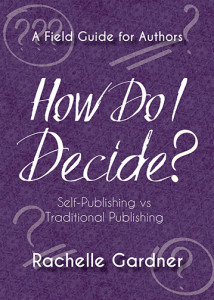
Did you know I have an e-book available on Amazon?
How Do I Decide? Self-Publishing vs. Traditional Publishing can help authors figure out which path to take.
How Do I Decide? is a concise, definitive resource that will guide you through the decision, allowing you to ignore the noise and hype and focus on the right path for YOU. This is a fair and balanced approach that avoids favoring one choice over the other—and instead shows you how to determine which best fits your own situation.
About 50 pages jammed full of insider information, How Do I Decide? gives you the facts you need to make an informed choice. It walks you through the various steps of the publishing process so you can determine which road best suits your personal goals, temperament, and level of previous publishing experience.
How Do I Decide? is brief yet comprehensive, and includes:
• an overview of the current publishing landscape
• an outline of the path to publishing
• a user-friendly checklist to help you figure out your path
• pros and cons of traditional publishing
• pros and cons of self-publishing
SPECIAL FEATURES:
• An eye-opening infographic that’ll help you decide
• A “quiz” to streamline your decision-making process
• Additional resources with links to further information
The e-book is only $2.99 on Amazon. Check it out if you’re considering which path to take!
(Cover design by the fabulous Nicole Miller.)
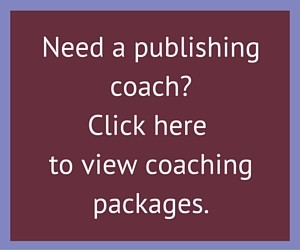
The post Traditional or Self Publishing? appeared first on Rachelle Gardner.
 I get mail! My inbox is always filled with questions. Today I’m answering some I’ve received on the topic of Query Letters.
I get mail! My inbox is always filled with questions. Today I’m answering some I’ve received on the topic of Query Letters.
You’ve said on your blog, “don’t pitch a novel unless it’s complete.” Do you feel the same about query letters? Do we only query completed works, or are ideas fair game?
If you are sending a query to an agent, only pitch projects that are ready to go. If it’s a novel and you are not previously published with a mainstream commercial publisher, this means a completed manuscript. For non-fiction, a complete book proposal and two sample chapters will do. (But the more you’ve written, the better.) Think about it: If I read your query and I like it, the first thing you’ll hear from me is, “Please send a book proposal and sample chapters.” If that looks good and I’m seriously considering representation, I’m going to ask you for everything you’ve got. I can’t sell to a publisher without the whole shebang (unless you are multi-published and a proven commodity). You can’t query an idea, because ideas have no value without execution.
What about sending in a synopsis instead of a query?
Don’t do it. Some people send a synopsis and nothing else, not even a salutation or a closing. IMHO, it’s rude and unprofessional. In fact, I received one today. Just a one paragraph synopsis. Nothing about the author. Just a line saying, “Email me if you’re interested in seeing more.” I wasn’t interested, so I deleted it without responding.
I’m curious to know if there are any cliché phrases that you’ve found in query letters that writers absolutely, positively should avoid.
The thing about clichés is that in a few cases, when used correctly, they can be perfect in a query, especially if they make the reader laugh. In most cases, however, since your query is a writing sample, your best bet is to avoid sounding hackneyed or derivative. The best advice I can give about clichés is another cliché: When in doubt, leave it out.
I’ve heard about authors who strayed from standard guidelines and got picked up by a publisher or agent. Some people encourage us to do the same. We’re told to follow guidelines, then we’re told to stand out. I realize our writing will determine if we stand out or not, but what kind of things that stray from the guidelines would catch your attention in a good way?
I don’t expect you to be slaves to guidelines, I just try to offer tips to help you put your best writing forward. With all guidelines (on writing, pitching, querying, etc.) try to see behind the specific advice and get to the basic truth. With a query, the basic truth is that you need the agent/editor to want to see more, or you’re sunk. It’s up to you to figure out how to accomplish that goal. Use guidelines to help learn the craft of writing and the business of publishing… let them go when you don’t need them anymore. I can’t say “what kind of things that stray from the guidelines would catch my attention” because that’s as individual as the person.
Do you accept query letters for books that have been self-published? I ask this because I have one, but I’ve been seriously considering having it edited by a professional, rewriting it and then seeking representation for it.
Yes… no… maybe. It’s a common question these days but there are too many variables. The most important consideration will always be how good your book is, and how well it has the potential to sell. Most agents prefer you query with your next book, not the one that was self-published. But if you really want to give it a shot, I suggest a normal query to agents, including the self-pub information (release date, sales figures). You’ll find out soon enough if it’s catching anyone’s attention.
I know the importance of addressing the letter to a specific person, not just Sir or Madam or Dear Agent, however, even though I feel as if I know you from reading the blog, Dear Rachelle seems far too informal. Is Ms. So and So acceptable to most women who are agents?
Interestingly, I recently read some heated debate on another blog about the “Ms.” salutation. I was stunned to find that a few women seem to resent or dislike the term. Nevertheless, the correct salutation is Ms. Gardner or Mr. Smith. Once you’ve corresponded with the person, you can take your cue from how they sign their emails. I’m always just Rachelle and I’m okay being addressed that way. Personally, I don’t object to people querying with my first name rather than “Ms.” because I go to great lengths to be approachable by writing my blog.
Could you please provide the pronunciation of the word “query” that won’t make agents/editors wince? Does it rhyme with PRAIRIE or EERIE?
Leave it to an English teacher! Potayto, Potahto. Tomayto, tomahto. Your choice. Just make sure you use the preferred pronunciation of the editor/agent you’re talking to. (tee hee) As for me, I couldn’t care less how you say it. As long as you SPELL it right.
Questions, thoughts or comments about query letters?
Click on the icons below to share!
The post Answering Questions about Queries appeared first on Rachelle Gardner.
 Are you the kind of writer who has several book ideas (or even written several books), possibly in different genres? If so, you may be wondering where to start. Which book should be the first one you write, or pitch to agents and editors?
Are you the kind of writer who has several book ideas (or even written several books), possibly in different genres? If so, you may be wondering where to start. Which book should be the first one you write, or pitch to agents and editors?
It’s a question worth asking, and you’d do well to put some serious thought into it. Here are my thoughts:
FOR NON-FICTION:
Spend some time on each idea, one by one. First work on a rough outline of what the book would be. List the themes and topics you’d want to cover. Ask yourself: is there enough material here for a whole book? Consider whether you’ll be able to gather the information needed to fill a book on this topic. Is there enough to say?
Marketplace: Are there other books on this topic? Too many? Is there room or need for another one? Can you identify a hole in the market that needs to be filled? If there are no books on this topic, consider why. Is there a need but no one has filled it yet? Or is this something that people don’t want to read a book about?
You: Consider whether you’re the right person to write this book. Do you have any qualifications that would cause book buyers to trust you? Do you have a platform with which to sell this book?
The idea itself: Try to be honest. Is it unique, or derivative of many other books you’ve seen? When you talk with people about it, do they seem to get it? Do they respond with excitement, curiosity, inquisitiveness?
Put all your information together and a picture should emerge of each idea’s viability and chances of selling.
FOR FICTION:
Where is your heart? Others might have different advice, but I think you need to write the novel that is most on your heart and mind right now. Always save your book ideas in a file, and add to them when the muse strikes. But write the one that’s speaking to you.
Get some input. You could carefully craft a one-sentence hook for each of your book ideas, then show them to a group of friends or fellow writers, asking them to rank the ideas in order of interest. This might help, if there is some similarity in their answers. Perhaps a clear winner will emerge. But you might get a variety of responses. So again, you’ll need to choose the book you are ready to write. With fiction, the idea is important, yet secondary to the writing.
What about market trends? You do need to know what’s going on in the marketplace, but be aware it can change at any moment. What editors are looking for today might not be what they’re seeking eight months from now when you finish your novel. So don’t chase trends.
The first book sets you up. If you haven’t sold any books yet, be aware that branding is important, so the first book you sell will set you up to begin creating your brand. Make sure that first book is something you want to write, and make sure it begins establishing a brand identity that you’ll continue.
Do you have a variety of book ideas or entirely written books? How will you decide where to start?
Need a writing or publishing coach? Click here for packages.
The post So Many Ideas, So Little Time appeared first on Rachelle Gardner.
 When you’re trying to interest an agent or publisher in your book, you’re often asked to provide “comps” — other books that could be compared to yours, or books that might compete with yours. A good book proposal always has a “Competition” or “Comparable Books” section, and even if you’re self-publishing, it helps if you give readers a frame of reference in the form of similar books.
When you’re trying to interest an agent or publisher in your book, you’re often asked to provide “comps” — other books that could be compared to yours, or books that might compete with yours. A good book proposal always has a “Competition” or “Comparable Books” section, and even if you’re self-publishing, it helps if you give readers a frame of reference in the form of similar books.
One of the most common questions I’m regularly asked is, “How do I figure out what books to include in my comps?” People get all hung up on it, especially with fiction. Do I look for books with the same premise or plot? Same time period? Same writing style? How do I know what to include?
I’m going to make it easy for you.
Ask yourself, “Who are my readers? What are they reading right now?” Those are your comparable books.
Keep this line in mind:
“People who enjoy the following books are likely to enjoy my book.”
You can use that line in a proposal, then follow it with the comparable books, and for each one, a brief explanation of why your book would appeal to those same readers. This approach frees you from trying to decipher what an agent is looking for, and instead, use those comps to identify your audience.
If you can’t readily identify six to ten books or authors whom your potential readers are already reading, then you need to stop what you’re doing and get a lot more educated about what’s already out in the marketplace, and who your potential audience is. If you can’t identify your audience, then how will you or a publisher sell your book to them?
Providing “comps” is all about helping your agent, your editors, your marketing team, and your readers to capture a vision for your book.
Too often, writers tell me, “I’ve looked and looked, and I can’t find anything quite like my book.” You and I both know that’s a cop-out. Think about your potential readers, and figure out what they are already reading. It’s that simple.
To read a little more about how to create a strong Competition section for your book proposal, click HERE.
Do you know what books your potential readers are already enjoying? How do you research this?
Comment below, or by clicking: HERE.
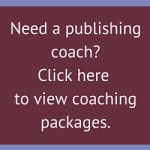 TWEETABLES
TWEETABLES
The one simple secret to providing “comps” for your book. Click to Tweet.
Think there are no other books like yours? Think again. Click to Tweet.
Providing “comps” for your book is as simple as knowing your audience. Click to Tweet.
Image copyright: dgilder / 123RF Stock Photo
The post Finding Comparable Books appeared first on Rachelle Gardner.
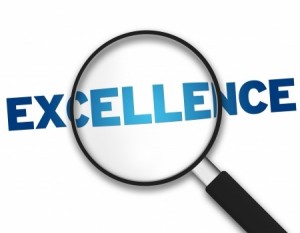 It seems in the last few years, dialogue about all-things-publishing has been focused on platform, marketing, increasing output, distribution platforms, technology, and self-publishing. But I think it’s important to call our attention back to the work.
It seems in the last few years, dialogue about all-things-publishing has been focused on platform, marketing, increasing output, distribution platforms, technology, and self-publishing. But I think it’s important to call our attention back to the work.
Two years ago in January 2014, I posted a prediction for the coming year:
“I think authors will re-focus on the foundational importance of writing a good book. Conversations will be more about mastering the craft and less about the logistics of publishing. People are becoming aware that while options are expanding because of self-publishing, and it may be easier than ever to get your work out to readers, the process of writing a good book is the same as it’s ever been. It’s challenging, it’s grueling, it’s mentally and emotionally exhausting — and it can be incredibly satisfying. People will have a renewed awareness that ultimately, the great writing itself is the very best platform there is, and determine to put most of their efforts in that direction.”
I’m not sure if my prediction came true. Are authors re-focusing on the writing? Some are, some aren’t. But here’s what I know: It’s easier than ever to get a book published because of self-pub and indie publishing. But it’s not any easier to write a good book.
In fact, it may be even harder to write a good book than it was in days past, because both you and your reader have more distractions. You’re tempted by the Internet, your ability to concentrate for long periods of time has been compromised, and deep focus is more challenging. Meanwhile, your reader has infinite sources of information and entertainment. So a book has to be darn good to to keep both your attention and your reader’s. Now is the time to make sure we’re not minimizing the importance of mastering the craft.
Platform is important if you want people to read your work. But ultimately, great writing is the best platform. A million followers are meaningless if you don’t have something worthwhile for them to read. Marketing challenges, evolving technology, and competition will always be with us. But it’s irrelevant without a good book.
I sense, out there in writer-land, an increasing focus on writing more-more-more. Many want to publish as fast as possible. Volume + speed = more money, or more success, or some such equation. But readers can only read so much. They’ll have shrinking patience for works that feel sloppily crafted and hastily written.
The only way forward is the same as it ever was: run away from the noise, hunker down and wrestle mightily with your prose.
As an agent, I’m here to help with the “other stuff.” Only you, the writer, can do the most important part. Write that book. And make it great.
Let’s collectively settle into 2016 remembering that mastering the craft is the best object of our focus. There is a time for considering various publishing routes and promoting our works, but only when we have in our hands a book that is the absolute best it can be.
So where are you on this? Are you mainly focused on craft, or do you spend a great deal of energy focused on other aspects of publishing? What’s the right balance?
 Tweetables
Tweetables
Let’s go into 2016 focused more than ever on the craft of writing. Click to Tweet.
It’s harder to write a good book today – you & your reader have more distractions. Click to Tweet.
A million followers are worthless if you don’t have something good for them to read. Click to Tweet.
Image credit: kbuntu / 123RF Stock Photo
The post Focus on Writing the Best Book You Can appeared first on Rachelle Gardner.
 As a literary agent, I love attending conferences and meeting authors. My career is about helping writers share their words with the world, and at conferences I get to sit down with them and spend a few minutes getting to know what they’re passionate about. There’s nothing more rewarding.
As a literary agent, I love attending conferences and meeting authors. My career is about helping writers share their words with the world, and at conferences I get to sit down with them and spend a few minutes getting to know what they’re passionate about. There’s nothing more rewarding.
When I meet with you, my goal is to get to know you and your book idea. I’m rooting for you as you sit down and we begin our conversation. Every writer has something valuable to offer, and I’m always on the lookout for the golden nugget you’ll share.
But what if you’re nervous?
Many writers feel self-conscious when sitting down with a publisher or literary agent. In any social situation, the key to reducing butterflies is to take the focus off yourself. (Tweet this.) Don’t worry about what they think of your ideas, whether or not they like you, just focus on the other person. The easiest way to do this is to ask people about themselves, about their writing, about how their day is going. If you are genuinely interested in them, you will become interesting to them.
So what do you say to a publisher or agent?
The secret to success is thoughtful preparation. Assuming you want to talk about your book idea, remember this is a conversation, and start like you would in any conversation: with a bit of context or background. Take a moment to introduce yourself and establish rapport.
The best book pitch will begin with some background information. (Tweet this.) For example:
My name is _____ and I wanted to meet with you because _____.
I’ve been blogging for ______ (how long) and my blog is about _____ (brief description).
I work as a _____ (if related to your book). Or, My ministry is _____.
Today I want to tell you about my book which is currently called _____ .
Then, launch into your pitch. This should be a maximum of 2 to 3 minutes long, and after you’re finished, the agent or editor will ask questions. Have a 1-minute pitch prepared, too, in case of mealtime or elevator pitches. (See “Crafting Your Elevator Pitch.”)
Here are some guidelines:
→ Include a closing line in your pitch—you don’t want to trail off in uncertainty, creating an awkward moment. A good closing line expresses your intent, such as, “I’m hoping this book will encourage women to become more socially conscious in their daily life, and give them practical tips for doing so.” Sometimes the best closing lines are questions, such as, “Is this something you’d like to hear more about?” Or, “Those are the basics. Can I answer any questions?”
→ Don’t get ahead of yourself. The purpose of your pitch is not to close a deal. It’s to pique your listener’s curiosity and desire to continue talking. (Tweet this.)
→ Be prepared to talk “numbers.” Know your blog stats and number of email subscribers, Facebook fans, and Twitter and Instagram followers. Letting me know the work you’ve put into your project tells me you’re willing to undertake the work we have ahead.
When you go to a conference, I hope your publisher and agent meetings are among the most enjoyable moments. It’s such a great opportunity to make positive connections. Be yourself, and try not to stress too much.
What are your biggest concerns about meeting with publishers and agents? (Tweet this.)
Comment below, or by clicking: HERE.
The post How to Talk with Publishers and Agents appeared first on Rachelle Gardner.
 Standard wisdom used to be that authors, both fiction and non-fiction, should build relationships with readers through blogs. As social media and online marketing have evolved, my thoughts on blogging have changed.
Standard wisdom used to be that authors, both fiction and non-fiction, should build relationships with readers through blogs. As social media and online marketing have evolved, my thoughts on blogging have changed.
The proliferation of blogs in the last ten years has made it increasingly difficult to stand out in the crowd. Many authors are blogging faithfully but it doesn’t seem to be increasing readership of their books; in fact most of their readers are other writers. One good indicator blogging might not be for you is if you have a hard time figuring out what you should write about.
So, how do you decide if you should have a blog?
Have a blog if:
1. You have something important to say and it seems people want to hear it.
2. You understand that blogging is about offering something of value, NOT about promoting yourself and your books.
3. You enjoy blogging (for the most part, anyway).
4. You find blogging contributes to your creativity and enthusiasm for writing your books, rather than sucking all the energy out of you.
5. You can find the time for blogging without it completely stressing you out.
6. Your books have a highly defined target audience, making it easy to target your blog.
7. Your books are topical (especially non-fiction), so that you have a clear and obvious theme for your blog.
Don’t have a blog if:
1. You keep asking yourself and others, “But what should I blog about?”
2. You only want to blog to promote your books and/or because you think you “have to.”
3. The whole idea stresses you out.
4. You honestly don’t have the time in your schedule to blog regularly.
5. You’ve been blogging for a year or more, and haven’t built up to a traffic level that seems worth it.
Here are some alternatives to blogging when it comes to online networking and promotion.
- joining a group blog
- sending email newsletters
- using Facebook effectively
- leveraging the various ways Goodreads offers for promoting books
- attracting a readership through Pinterest and/or Instagram
- having an effective LinkedIn profile page
If you don’t want to blog or be engaged in online promotion, should you self-publish instead of seeking a publisher?
I get this question from writers frequently, and my answer is: What would be the point of self-publishing a book, if you have no intention of promoting it? Who will buy it? With millions of books available for sale at any given time, what’s your plan for letting people know that yours exists?
Blogging and other means of online promotion aren’t just hoops that publishers want you to jump through. They’re real and necessary methods of letting people know about your book. So if you have no intention of letting anyone know about your book, through a sustained, long-term promotional plan of online engagement, then think carefully about whether you want to write a book for publication. If you build it: they will NOT come. You must promote it.
Do you blog? If so, how’s it going? If not, why not? Comment below, or by clicking: HERE.
TWEETABLES
Here’s how to decide whether or not to blog. (Click to Tweet.)
Want to be an author, but don’t want to blog? There are alternatives! (Click to Tweet.)
The post To Blog or Not To Blog, That is the Question appeared first on Rachelle Gardner.
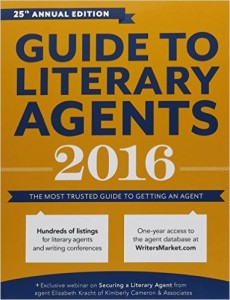 Chuck Sambuchino and the Writers Digest team have chosen the three winners of the Worst Storyline Ever Contest 2.0.
Chuck Sambuchino and the Writers Digest team have chosen the three winners of the Worst Storyline Ever Contest 2.0.
Here are the winners, and their winning Worst Storylines. Drum roll please…
Linda Hofke
After his wife leaves him, an old, bald, former 80s rock star goes on a quest to reunite with his first love— his hair–but is he brave enough to endure a hair transplant or must he settle for a cheap wig in order to sport those big, long locks once again?
Jennifer Ruth Jackson
Karl wants nothing more than to watch the kitchen linoleum curl all summer long but, when his wife insists on doing a time-lapse project of the event, Karl’s “me time” becomes a forced “we time” he soon resents.
Lyndsay Johnson
When a family intervention forces hemophobic vampire Bartholomew into a job at a blood bank to face his fears, he is soon enlisted by coworker, Estella, to drain the vault and make a run for it—awakening Bart to a whole new world of adventure and black market blood lust, with a girl he discovers is just his type.
Congrats to the winners!
The post Winners! appeared first on Rachelle Gardner.

Guest Blogger: Chuck Sambuchino, editor and writer for Writer’s Digest, and host of the Guide To Literary Agents blog.
Here’s Chuck:
September 2015 sees the release of three of my new books, the 2016 Guide to Literary Agents, the 2016 Children’s Writer’s & Illustrator’s Market, and the anti-clown humor book When Clowns Attack: A Survival Guide.
To celebrate their release, we are bringing back a popular recurring contest: The “Worst Storyline Ever”—a competition that encourages terrible loglines. Winners get prizes.
The “Worst Storyline Ever” Contest 2.0
A logline is one sentence that explains what your story is about and shows the “hook” – the unique idea that makes people want to see more. You see loglines all the time on the back of DVD boxes. Here are some examples:
- “Three middle-aged men defeat their midlife crises by starting a college fraternity.” (Old School)
- “When a Roman general is betrayed and his family murdered by an evil emperor, he comes to Rome as a gladiator to seek revenge.” (Gladiator)
- “In a future where criminals are arrested before the crime occurs, a cop struggles on the lam to prove his innocence for a murder he has not yet committed.” (Minority Report)
But that’s all the examples I’m going to give you, because I’m not looking for good examples of a logline; I’m looking for bad examples. Terrible, stupid, “oh-my-gosh-that-idea-REEKS” examples.
Examples of Bad Loglines (Previous Winners/Finalists):
- “After an unidentified cow swallows an armed nuclear device in a botched Homeland Security raid, Agent Tom Anderson is thrust into an unlikely partnership with buxom organic farmer Daisy Jones to sift through three hundred cows and 10 barns full of manure as the clock runs down in a desperate quest to save Kansas City from a moo-clear disaster.”
- “A young woman discovers she is half unicorn after farting a rainbow at her bat mitzvah, and must go on a hijinx-filled voyage of self discovery to find her real father and fit as ‘one of the herd.’”
- “Leonard the narcoleptic snail sets out on his lifelong dream of running the Boston Marathon while humming ‘Macarena,’ and invites you to join the excitement in real time.”
Stick to the format, but have fun with the idea. Your logline must be one sentence, 60 words or fewer, and explain what the movie/book is about. It’s what you put in that one sentence that will win you this competition. The trick is to make your logline a terribly creative idea that’s pitched in a minimal, professional manner.
The contest will go until the end of the day, 11:59 p.m., PDT, Tuesday, October 20th, two weeks from today. Submissions received after that will not be considered.
Chuck will judge the contest, with some possible input from other WD and WD Books staffers.
To participate, simply leave a comment at the end of this post with your submission and your full name. Make sure we are able to reach you through your website or email. Comment by clicking: HERE.
You can submit up to two (2) bad loglines. You can include both in the same comment if you wish.
The contest is open to everyone of all ages, save those employees, officers and directors of GLA’s publisher, F+W: A Content and eCommerce Company (formerly F+W Media).
If you have any questions about the contest, e-mail Chuck directly at [email protected]. Do not leave them in the comments and do not e-mail Rachelle.
You do not have to share news of this contest to enter, but if you want to share this fun contest with others, here is an easy tweet:
Create the worst storyline you can – and win writing prizes. http://bit.ly/1KClppO via @chucksambuchino and @rachellegardner. Click to Tweet
There will be 3 winners.
Each winner receives:
- A critique by Chuck Sambuchino of either your one-page query letter or one-page synopsis .
- Your pick of a free book from any of his 3 recent releases:

2016 Guide to Literary Agents
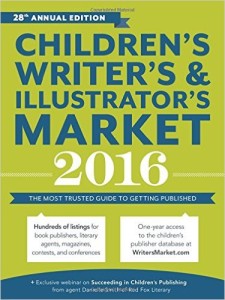
2016 Children’s Writer’s & Illustrator’s Market
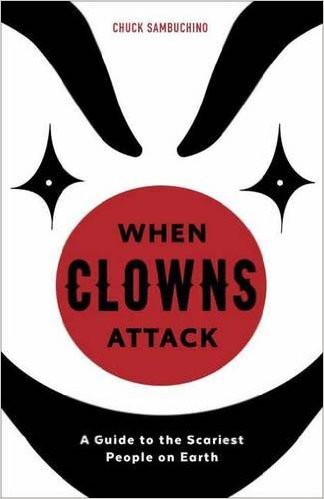
When Clowns Attack: A Survival Guide.
Chuck Sambuchino is an editor and instructor for Writer’s Digest Books. Find him on Twitter.
The post The Worst Storyline Ever Contest 2.0 appeared first on Rachelle Gardner.
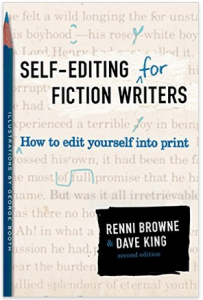 More writers are hiring editors these days, whether they’re going indie or just making sure the manuscript is polished before submitting to agents and publishers. If you’re a newer writer, unpublished, here are some things I think you should do before spending your hard-earned money on a freelance editor.
More writers are hiring editors these days, whether they’re going indie or just making sure the manuscript is polished before submitting to agents and publishers. If you’re a newer writer, unpublished, here are some things I think you should do before spending your hard-earned money on a freelance editor.
(1) Get objective feedback.
It’s best to have a critique group or partner, if possible. Try to get the most honest feedback you can—not on grammar and punctuation, but on the overall content of your book. Are readers finding the book engaging? Are they reading to the end? Are they confused?
(2) Edit & revise your book using reputable sources.
Find fiction resources HERE. My favorites for the revision phase are Self Editing for Fiction Writers by Browne & King, and Revision and Self-Editing for Publication by James Scott Bell.
Non-fiction resources HERE. Writing a memoir or personal story? Click HERE.
(3) Understand and follow 3-act structure.
This is for fiction and memoir. PLEASE don’t underestimate the importance of story structure. (Tweet this.) If your editor has to spend the bulk of their time fixing your structure and educating you about it, you won’t get the best value for your editing money. You can learn structure on your own—and seriously, your book won’t work without it. A couple of helpful resources are Structuring Your Novel by K.M. Weiland, and Plot & Structure by James Scott Bell.
(4) Read your book out loud to catch awkwardness and poor phrasing.
This is especially helpful to make sure fiction dialogue is snappy and believable. But it helps with any kind of writing. Often when you read it aloud, you’ll catch problems you’d never spot by reading silently. (Tweet this.)
(5) Make sure your editor has edited published books.
It’s difficult to verify the legitimacy and credentials of each editor. So do your best to verify that they’ve edited books that have been published by traditional publishers. It’s your best bet for getting a good edit.
Here are some freelance editors. There are a lot more out there in internet-land! Do your research.
Sometimes it’s hard to believe how difficult it can be to write about yourself in a bio—after all, you’re a writer! But I understand it’s not as simple as that, so here are a few tips to make it easier.
Write your bio in first person for query letters, third person for most other purposes including proposals, book jackets, article bylines.
Make it professional but you also need to convey personality and writing style. Don’t try too hard to be funny, but include something that makes you seem like a real person.
What gives you credibility? What makes you interesting? What helps people connect with you? (When you’re on Twitter, Facebook or your blog, what kinds of posts seem to get the most comments?) These are things you can briefly include.
If your book centers on something specific—the Civil War, for example—are you a member of a Civil War society? Have you published any articles in historical journals? Include that.
Try not to include too much “resumé” type information–education, job history, etc. because it tends to be boring. Only include what’s relevant to the book you’re pitching.
As you write a bio, consider carefully the purpose of the bio – who is the audience? Is it agents and editors? Is it your blog readers? Tailor it to this audience.
How to write a bio if you have no publishing credits:
- If you’re a member of a writers’ organization such as SCBWI, ACFW or ASJA, you can mention it.

- You can mention if you’re a member of critique group or if you have a degree in literature or writing.
- Don’t say something like “I’ve been writing stories since I was two years old.”
- Keep it short and sweet, i.e. “Jane Smith is a fifth grade teacher in Bellingham, Washington, and is a member of RWA.”
A bio for a query letter:
- For FICTION, if you’re unpublished, it should be one to two sentences—about 50 words or fewer.
- For NON-FICTION, it should be longer, enough sentences to establish your credits, credentials, and/or platform in the subject matter of your book.
Some tips for the process of writing a bio:
- Read author bios in a dozen different books. Note what you like and don’t like.
- Make a list of things you MIGHT want to say about yourself. Try to list 20 to 30 things—don’t self-edit, because you don’t want to leave anything out. Later you can choose the best elements to include.
- Write two or three bios of different lengths and keep them on file so that you have them ready when you need them.
- Trade author bios with a writer friend and help each other make them interesting.
What has worked for you? Comment to this post and share!
The post How to Write an Author Bio They’ll Remember appeared first on Rachelle Gardner.
 I’m always talking with authors about marketing their books and growing their platforms. It’s a challenge for most writers, who are constantly trying to figure out the formula for gathering more fans (i.e. potential book-buyers).
I’m always talking with authors about marketing their books and growing their platforms. It’s a challenge for most writers, who are constantly trying to figure out the formula for gathering more fans (i.e. potential book-buyers).
While writers typically don’t love the idea of marketing their books, ironically they’re more suited to it than many other kinds of business people these days. (Click to Tweet this.) Why? Because today the #1 strategy for marketing in every kind of business is CONTENT MARKETING.
And what is this newfangled, businessy sounding term?
According to Content Marketing Institute:
Content marketing is a strategic marketing approach focused on creating and distributing valuable, relevant, and consistent content to attract and retain a clearly-defined audience — and, ultimately, to drive profitable customer action.
In other words: WRITE STUFF.
And who better to write stuff than YOU? (Click to Tweet this.)
It’s funny, the rest of the advertising-marketing-business world is calling it “creating content” like it’s this brand-new thing they’ve invented. Um, it’s called “writing” and YOU do it every day.
Another way of putting it, also from CMI, is:
…content marketing is the art of communicating with your customers and prospects without selling.
The key words: communicating without selling.
So to become an expert at content marketing, here is what I want you to do:
Write and post stuff your readers will love.
By “stuff” I mean “content,” of course: blog posts, Facebook and Twitter posts, newsletter articles, images on Pinterest or Instagram, or videos on YouTube or Periscope. Anyone who is trying to build a following on social media needs to be posting content regularly—at least a couple of times a day. The tricky part is knowing what that content should be.
The key to identifying the kinds of content you should post is in knowing who you are as a writer, and who your audience (generally) is. This is easier for non-fiction writers, who can create an online persona that swirls around the themes of their books.
But even fiction writers can develop a brand and a style so that people have a strong idea of what to expect. You don’t want to be “that girl who is always posting about her books,” but rather, “the one who always has great articles that inspire me (or make me laugh… or educate me…)”
The idea is that when people are accustomed to receiving material from you that they deem valuable in some way—whether it’s informational, inspiring, thought-provoking, or entertaining—they will eventually reward you with their business (i.e. they’ll buy your books).
Fewer than 1 in 10 of your posts should include “selling” language. (Click to Tweet this.) The rest of your content flows from who your audience is, and the brand or online persona you’ve created.
Focus on your readers’ needs, not your own. (Click to Tweet this.)
Interestingly, you don’t even have to be the creator of all the content you share. To keep your social media presence dynamic, you’ll want to use “curated content,” a fancy word for “other people’s stuff.” Make sure you’re following people or organizations whose content tends to complement yours, so that when you see an appropriate post, you can easily share it with your followers.
Content marketing should be easier for YOU than for most businesses. After all, you’re already a writer. In fact, companies using content marketing typically report that their #1 challenge is “producing engaging content.” But you’re a writer, so this is right up your alley!
The key in content marketing is that you are engaging your audience. (Click to Tweet this.) You are in conversation with them through your interesting posts, and they’re coming to expect good things from you. So when you happen to share some news about your new book releasing, or your older book that’s on a promotional sale on Amazon, they’re willing to pay attention because you’re not continually bombarding them with marketing.
Of course, I’ve given you the highly simplified description of content marketing. It’s more than just writing great stuff—it’s writing great stuff as part of an overall marketing strategy based on your brand. But for now, let’s just start with the basics: write stuff your readers will love.
So: content marketing. A business-world term for what you already do everyday.
How are you already using content marketing? How do you think you might increase or improve that strategy in the future?
Image copyright: golfloiloi / 123RF Stock Photo
The post What the Heck is Content Marketing? appeared first on Rachelle Gardner.
 (This is a re-post from one year ago.)
(This is a re-post from one year ago.)
Here’s the deal: I don’t like the fact that you have to “build a platform” these days, any more than you do. But I get weary of writers complaining about it. I get frustrated by hearing that publishers are “abandoning writers” and “bringing nothing to the table.” I know it’s hard to market your books — I feel your pain — and yet I dislike it that people saying that publishers are shirking their duties by “leaving it all up to the author.”
REALITY CHECK:
Publishers did not create this brave new techno-world we live in.
It is not the publishing industry that has created this society of ubiquitous electronics, Internet noise, YouTube, X-Box, Facebook, Twitter, Instagram, Pinterest, Vine, and the decline of reading. It is not the publishing industry who put a computer in more than half of all American households, allowing millions of folks just like yourself to write books they want to sell.
It is not the publishers who brought our society to a place where it’s no longer possible to “market” books the old-fashioned way. It’s not the publishers’ fault that average human beings everywhere are being bombarded with literally thousands of pieces of information every day, making it more challenging than ever to draw a person’s attention to one little book.
The fact is, publishers are doing everything they can dream up, and everything they can afford, when it comes to marketing books. They have the same limitations you do: Time and Money. But they’re coming up with new ideas and innovations all the time.
Publishing is an “old world” industry, figuring out, day by day, how to thrive in this “new world.” We all face these challenges together. We all have to figure out how to get people to want to read our words… to want to PAY to read our words. We all have to figure out how to get our books to rise above the “clutter” and get the attention of readers who are willing to pay for them.
Those of you who find yourself bemoaning that “writers are expected to do everything” and concluding “we might as well self-publish” — perhaps the self-publishing route will work out better for you. For certain kinds of books and certain authors, it’s working out great. Give it a try!
But I want to point out that publishers are still in business because of the value they bring to the table — not just in marketing but in every aspect of the editing, production, and selling of books. It is harder these days to sell books than ever before, yes, but publishers are more than just a business selling widgets, they’re entities who take seriously the responsibility of preserving and disseminating the written word. And so publishing persists, despite the challenges, despite our changing world.
Part of the value publishers bring is a sense of history, a sense of tradition and permanence. Many authors still want to be a part of that. It’s about great stories and important thoughts. It’s about legacy. It’s about a dream. People in publishing still see this dream as worth it. They’re willing to swim against the tide because publishing isn’t just a business, it’s a life, it’s a calling, it’s a passion.
To all writers who believe in the dream, who have the passion, who feel called to the legacy — I’m right there with you, and so is everyone else who has staked their livelihood on this crazy, unpredictable, totally unrealistic business called publishing. Thanks for being here, and hanging on for the ride. To those who are frustrated by the ways it seems publishing can’t meet your expectations, I commiserate with you and I apologize that things aren’t the way we wish they could be.
To each and every author, I sincerely wish the very best for you as you seek your own way of getting your book to its intended audience. I am doing my best to be a positive and helpful part of this process.
Are you in it for the legacy? Or something else?
Comment below or by clicking: HERE.
TWEETABLES
Publishing is an old world industry, figuring out how to thrive in this new world. Click to Tweet.
Publishing isn’t just a business, it’s a life, it’s a calling, it’s a passion. Click to Tweet.
To all writers who believe in the dream, the passion, the legacy – I’m with you. Click to Tweet.
The post The Brave New World of Publishing appeared first on Rachelle Gardner.
 I blog every Wednesday at our agency site, Books & Such. To read my posts and participate in the comments, click HERE.
I blog every Wednesday at our agency site, Books & Such. To read my posts and participate in the comments, click HERE.
I have an agent page on Facebook. You can follow me on Twitter. Check out my Pinterest boards. Or connect with me on LinkedIn.
Scroll down for the latest posts here at my blog.
The post Find Me Online appeared first on Rachelle Gardner.
 This week I read a couple of online articles about the plight of the contemporary writer. In “Farewell to the Golden Age,” legendary author Philip Yancey summarizes the changes in publishing, both from his personal perspective and that of the industry as a whole. He notes, “Every year my royalties go down,” and notes that the reason he can still pay the bills as a full-time writer is because of his extensive backlist.
This week I read a couple of online articles about the plight of the contemporary writer. In “Farewell to the Golden Age,” legendary author Philip Yancey summarizes the changes in publishing, both from his personal perspective and that of the industry as a whole. He notes, “Every year my royalties go down,” and notes that the reason he can still pay the bills as a full-time writer is because of his extensive backlist.
Yancey laments, “I do worry, though, about new authors who don’t have a backlist to depend on. As readers are trained to pay less (or nothing) for books, how can authors survive?”
He has a good point, as underscored in The Guardian (UK). The article, “Authors’ incomes collapse to abject levels” is a review of a survey in the UK that indicated 11.5% of “professional writers” — those who dedicate the majority of their time to writing — earn their income solely from writing. It discusses the decrease in advances, the drop in royalties for established authors, and the fact that a few writers make a lot of money while the majority don’t. It put the median annual income of professional authors in the UK at less than $19,000. Not enough to support a family.
These two articles are simply highlighting a new reality — publishing is in flux and no one is quite sure what the future looks like. Everyday we’re faced with difficult truths:
• Publishers are merging, resulting in fewer places to submit manuscripts.
• Many authors who have published numerous books are finding their advances going down, not up.
• With self-published books now plentiful, there are more books than ever for readers to choose from.
• It is difficult figuring out how to effectively market books.
• A book’s potential sales are highly unpredictable.
• Many authors’ books don’t live up to the publisher’s sales expectations, meaning the publisher might not want to renew their contract.
• Poor sales figures can make it difficult or impossible to get another traditional book deal.
• The publishing journey often doesn’t live up to an author’s expectations.
In the midst of these truths, writers may experience moments of disappointment and dejection. They might be anxious that a series of speed-bumps could signal the end of their writing career, sometimes before it has even started. Often they are questioning whether it’s time to give up. Some are sad, thinking their lifelong dream is dying. A few are wondering how they are going to pay the bills.
While I understand that everyone has to deal in their own way with disappointment, I also want to encourage everyone to avoid getting bogged down in despair. Because here are some other truths:
• Being a published author is still an amazing experience even if it’s not your primary source of income.
• Publishing setbacks are not “failures” but necessary and expected rites of passage in this business.
• Just because things didn’t go the way you envisioned doesn’t mean things can’t still go well — possibly after re-envisioning your goals.
• People are still reading, meaning we still need writers.
• There are more options than ever before for getting your work in front of readers. You might have to adjust your expectations regarding how much you’ll get paid for it.
• You can embrace your identity as a writer, and refuse to let external circumstances change that.
• The best way to deal with this new reality is to stand up and fight. Don’t let yourself settle in to the despair. You’re not a quitter — pull out that fighting spirit and decide to be a writer regardless of the obstacles.
• Write your books. Share them with people.
Don’t ignore reality. But also, don’t let yourself get trapped in despair. You can’t afford the time. Better get back to work!
Have you experienced moments of despair over the state of publishing? How did you handle it? How do you recommend we all move forward?
This post originally appeared at Books & Such.
The post How to Respond to Alarming Changes appeared first on Rachelle Gardner.
 I’m blogging at Books & Such today. Here’s a preview:
I’m blogging at Books & Such today. Here’s a preview:
As a writer, you’re always going to find it necessary to “sell your stuff.” To do that, you need to create those all important sales materials for your book: The one-sentence summary. The query. The pitch paragraph. The elevator pitch. The proposal.
I want to focus on fiction here today (since our blog survey revealed 78% of you are writing fiction!) So, how do you create those sales materials for a novel? The main elements of a fiction pitch are:
The main character
Their choice, conflict, or goal
What’s at stake (may be implied)
Action
Setting
But it’s still hard figuring out exactly the right way to pitch. You have to simplify your story and pitch a single plot thread and as few characters as possible. You have to be precise, and use specific (not vague) language. And you have to make it interesting, which means you need to find the most unique and special aspect of your story and make sure it’s covered in the pitch.
So I’ve come up with a set of 11 questions that I recommend novelists work through before even starting to craft a pitch or summary. If you think about the answers to these questions, and write them down, you’ll be more equipped to find the right elements of your story to include in the pitch.
Click HERE to read the post at Books & Such.
The post 11 Questions for Crafting a Pitch appeared first on Rachelle Gardner.
 I’m blogging at Books & Such today. Here’s a preview:
I’m blogging at Books & Such today. Here’s a preview:
A couple of weeks ago I told you what the editorial process typically looks like inside a publishing house. Sometimes the editing is smooth and wonderful, but not always. Today I wanted to talk about what to do when it gets rocky.
As a writer, you care deeply about your words and you’ve tried to get them just right. Hence your first encounter with an editor might be a little daunting. When they send you pages and pages of notes for revisions, you might be overwhelmed, depressed, and demoralized. Take heart… this is normal!
I recommend you enter the editorial process with a humble and teachable spirit. The editing process is a terrific opportunity to learn how to improve your writing.
But what if your editor requests changes with which you disagree? How you handle it may depend on who you are—a bestselling author versus a first-timer. (Guess who has more leverage?)
My advice, in a situation where you don’t understand the editorial request or you disagree with it:
- Ask a lot of questions of your editor. Try to get their perspective.
Click here to read the entire post at Books & Such.
The post When Editing Goes Wrong appeared first on Rachelle Gardner.
 Over at Books & Such, we’re running the 2014 Books & Such Reader Survey. If you’d like to chime in, please click through to share your thoughts.
Over at Books & Such, we’re running the 2014 Books & Such Reader Survey. If you’d like to chime in, please click through to share your thoughts.
Click here to take the survey.
The survey is anonymous, but if you leave a comment on today’s post on the Books & Such blog, you’ll be entered in a random drawing for a $25 Starbucks gift card. Just our way of saying thank you for participating. When you comment, please feel free to share additional thoughts or suggestions about our blog.
The survey will be open for 7 days so please respond by Tuesday, May 20, 2014. Thank you for letting us hear your voice!
~Click the Starbucks logo to take the survey.~
Click HERE to get to today’s post at Books & Such to leave a comment.
The post Take Our Reader Poll appeared first on Rachelle Gardner.
 “The report of my death was an exaggeration.” So said Mark Twain in 1897, and I’m wondering if Barnes & Noble might be saying the same thing right about now.
“The report of my death was an exaggeration.” So said Mark Twain in 1897, and I’m wondering if Barnes & Noble might be saying the same thing right about now.
Over the last week, an article by Michael Levin has been making the rounds, causing fear and trembling among certain groups of authors and publishing folks. Syndicated on news websites all over the U.S., Levin’s article predicts that Barnes & Noble may close all the rest of their stores by the end of the year. It proposes five reasons for B&N’s demise, and goes on to lament the awful tragedy this would be. (You can read a version of the article HERE.)
I just want to add my two cents to the pot:
Everybody, get a grip.
1. We’ve known for a long time that B&N’s position was—and is—precarious. This is not news. (Forecasting “B&N closing by the end of the year” is, however, a great way to get lots of clicks and shares.)
2. While it could happen, we haven’t seen any evidence that B&N will be dead before 2015. This business is always rampant with rumors, and what good does it do? I prefer to ignore attention-seeking prognostications and wait for the real news.
Now, let’s say Mr. Levin’s prediction is correct. What then?
I daresay the world won’t end. Things will change for publishers and readers and everyone in between—but things have already been changing and we ought to be used to it by now. It’s not as if publishers are unaware that this could happen. And it’s not as if readers are clinging to B&N as their last and only hope for access to books.
Let’s take a few of the statements in this article and expose them to the light.
“Literary agent David Vigliano says that the disappearance of bookstores, and the move to buying books on Amazon, represents the death of browsing.”
No offense to either Mr. Levin or Mr. Vigliano, but this is categorically untrue. Millions of readers are browsing just fine, thank you very much, online and in (gasp) libraries. Why do you think B&N is having so much trouble? Not just because of showrooming (people browsing in the store, then buying online.) But because many, many readers have already made the switch to online browsing and are having no trouble finding the reading material they want.
“Serendipity – the sweet surprise of happening upon an unexpected book – is an experience that can happen only in a bookstore.”
This feels to me like the ranting of Luddites who can’t get used to this thing called the Internet. They can’t believe that it actually WORKS. Again, this statement is so untrue as to be almost ridiculous. Millions of readers are experiencing “serendipitous” sweet surprises much more often nowadays via the Internet than they ever could from walking into a bookstore.
“Yes, Amazon’s algorithms can point you to books you may like, but there’s no substitute for wandering the aisles of a bookstore, looking into a section you might never have visited before, and finding a new author or subject you had never considered.”
Oh, brother. I regularly find new authors and subjects I’d never considered—by tuning in to NPR and the Wall Street Journal, by following smart bloggers, by checking Facebook every now and then, by belonging to a book group, by browsing on Goodreads, and by having actual conversations with actual people. I have probably been in B&N five times in the last five years—and I read as many books as almost anyone I know.
“Barnes & Noble killed privately owned bookstores, and Amazon and technology are killing B&N. It’s downright Darwinian.”
It took a lot more than B&N to drive many privately-owned bookstores out of business—it was the advent of digital books, and it was all the big stores (Borders, Walmart, Costco, etc), and it was Amazon. But think about it. If B&N folds, it might be exactly what we need to bring back the privately-owned local bookstore that knows how to serve its own community.
Could B&N close this year? Sure. Would it be a tragedy of epic proportions? No, except for the fact that many would lose their jobs because of it. My heart goes out to those people.
Publishers (and writers, and agents, and everyone else in the book food chain) will figure out how to rally. We’ve been adjusting to massive changes for half a decade already, and there’s more to come. I understand it’s difficult to deal with uncertainty (you have no idea how well I understand this). But I’m so over the drama, and the fear, and the hand-wringing.
Let’s keep looking ahead at the possible changes in our industry, and asking ourselves: What’s good about this change? How does it bring us into the future? What do I need to do to adjust to this change? Does it offer any opportunity for me?
I’d like to hear your thoughts.
Comment below, or by clicking: HERE.
Tweetables
Barnes & Noble closing? Agent @RachelleGardner says: Everybody get a grip. Click to Tweet.
Could B&N close this year? Sure. A tragedy of epic proportions? No, says agent @RachelleGardner. Click to Tweet.
“The report of my death was an exaggeration.” Mark Twain–and Barnes & Noble? Click to Tweet.
Image credit: twindesign / 123RF Stock Photo
The post OMG! What if B&N Closes? appeared first on Rachelle Gardner.
 I’m blogging at Books & Such today. Here’s a preview:
I’m blogging at Books & Such today. Here’s a preview:
Earlier this month at PubSmart, I co-taught a workshop on “setting yourself up for success” at the conference. I offered the idea that the participants’ most important connections would be with their fellow writers, not the agents, editors, or other professionals.
Other writers are your fellow pilgrims on the writing-and-publishing journey—the ones who can still be there for you five or ten years into your writing career. It’s impossible to overstate the importance of building genuine relationships with writers who are in a similar place as you on the writing path.
We in the publishing world spend a lot of time talking about things like:
• The best thing you can do for your platform is write a great book.
• Publishing isn’t about who you know, but what you write.
For the most part, these are true statements. Nevertheless, networking with other authors can be tremendously valuable.
CLICK HERE to read the complete post at Books & Such.
The post Is It Important Who You Know? appeared first on Rachelle Gardner.
 I’m blogging at Books & Such today. Here’s a preview.
I’m blogging at Books & Such today. Here’s a preview.
Classic wisdom for unpublished authors seeking traditional publication has been that if you’re writing a novel (fiction), you need a complete manuscript. If you’re writing non-fiction, you need a book proposal plus two or three sample chapters. If you’re writing a memoir, who knows — everybody has a different opinion.
Here’s what is true and will always be true: unpublished fiction authors MUST have a complete novel before trying to get an agent or publisher. No question, no exceptions.
But things are changing in publishing, especially when it comes to non-fiction. In some ways, the standards are higher. It’s more of a risk for a publisher to say “yes” to an unproven author. And in light of this reality, I’m going to make a bold and probably controversial suggestion.
No matter what you’re writing, even if you’re already published, even if it’s non-fiction or memoir:
Consider writing the whole book before you search for a publisher.
Why would I say such a thing? A few reasons:
1. It lowers the risk for the publisher.
Click here to read the whole post at Books & Such.
The post Write the Whole Book Before Pitching? appeared first on Rachelle Gardner.
 I’m blogging at Books & Such today. Here’s a preview:
I’m blogging at Books & Such today. Here’s a preview:
I began blogging as an agent in January of 2008, and it’s remarkable to look back over my past posts and notice how much has changed in six years. When I started, I didn’t even have a Kindle. Now my family owns five Kindles plus iPads and various other electronic devices, and I wouldn’t want to do this job without them.
I wrote posts back then about how there was a stigma to self-publishing and I warned writers against it— if they wanted to be taken seriously. Now self-publishing is a normal and accepted option for writers.
I wrote about how e-books were a minuscule percentage of any author’s total books sold.
I was not even on Twitter until a year after I started the blog (January, 2009). Facebook and Twitter were still optional and sort of curiosities.
What else has changed in the book business?
- The closing of Borders was an epic blow to the industry, many independent bookstores have closed, and pundits frequently discuss the future of Barnes & Noble.
Click HERE to read the post at Books & Such.
The post What’s Changed in Publishing? appeared first on Rachelle Gardner.
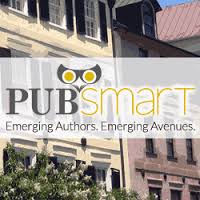 I have a post up at PubSmart today. In case you haven’t heard, PubSmart is a new writers’ conference debuting this April in Charleston, SC, with the goal of bringing together self publishing, traditional, small press and hybrid. PubSmart is about introducing new models that lead to smart decisions about how to seize opportunities in today’s transformed book marketplace. I’m thrilled to be on the faculty of this terrific new conference! Keynote speakers are Hugh Howey and Jane Friedman, and the faculty includes heavy hitters from all walks of today’s expanded publishing world.Learn more on the PubSmartCon website.
I have a post up at PubSmart today. In case you haven’t heard, PubSmart is a new writers’ conference debuting this April in Charleston, SC, with the goal of bringing together self publishing, traditional, small press and hybrid. PubSmart is about introducing new models that lead to smart decisions about how to seize opportunities in today’s transformed book marketplace. I’m thrilled to be on the faculty of this terrific new conference! Keynote speakers are Hugh Howey and Jane Friedman, and the faculty includes heavy hitters from all walks of today’s expanded publishing world.Learn more on the PubSmartCon website.
Here’s a preview of my post:
What’s Your Book About?
Everyone attends conference for their own reasons—to learn, to network, to get a break from home. One of the primary advantages of a conference is the opportunity to talk to people, including fellow writers and others in the industry. Naturally, one thing you’ll want to talk about is your work, whether you’re in a formal pitch session or just hanging out having drinks. But talking about our work is sometimes challenging! So here are seven tips for discussing your book(s) effectively.
1. Be prepared. You never know when you’re going to come across someone who will ask, “So what’s your book about?” Mealtimes, hallway chatting, elevator rides, and designated pitch sessions. Prepare ahead of time so you’ll never be caught stammering, “Well, it’s um… it’s kind of an… uh…”
2. While preparing, remember that you’re going to be talking to someone. There are differences between verbal and written pitches. Your speaking voice is different from your writing voice. Make sure you don’t prepare something that sounds too “canned” i.e. written.
Click HERE to read the complete post.
→And don’t forget our special Facebook event today! Books for writers specially priced at 99 cents, plus all-day chats happening with the authors of these books. Click here for more info.
The post What’s Your Book About? appeared first on Rachelle Gardner.
Tomorrow (Friday 2/28) I’m participating in a fun online event in which authors of 16 e-books specifically for writers are discounting their books to 99 cents, and will be hanging out on a special Facebook page to chat and answer questions from writers. The graphic below shows all the books available, and each one is individually clickable.
This is a great opportunity to expand your library of writer resources (dirt cheap!) and get some questions answered. The authors involved will be on Facebook at different times. I’ll be there 3 to 6pm EST.
Click HERE to join the Facebook event, and then on Friday you can show up, hang out, chat, ask questions and enjoy talking books with your colleagues in the business!
Each of these books is going to be 99 cents for Friday only, and then return to their regular prices.
Join us!

The post A Facebook + Amazon Event for Writers appeared first on Rachelle Gardner.
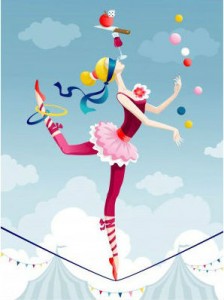 I’m blogging at Books & Such today. Here’s a preview:
I’m blogging at Books & Such today. Here’s a preview:
I enjoyed Wendy’s post yesterday about how agents spend their time. She did a great job of describing how agents work on their clients’ behalf, and I wanted to add my own two cents to further explain how we organize our days.
People frequently ask me about a typical day for an agent. I think most agents will tell you — there are no typical days! With a large number of clients, working on a variety of projects, all in various stages of writing or publication, the days provide endlessly changing excitement.
While agents always have a long to-do list, our most important job is to be responsive to our clients’ needs, as Wendy explained. The email box is always full, and fires erupt and need dousing with alarming regularity. So we begin each day with a “plan” and an awareness that we could end the day having not accomplished anything we’d planned.
I try to be aware of what’s important, what’s urgent, what’s both and what’s neither. (Remember those categories when you email your agent. Your situation will be prioritized along with everything else on her desk!) Whenever possible, I organize my days according to my priority list:
1. Contracts and Payments.
Fielding offers, negotiating deals, scrutinizing contracts, discussing clauses and terms with publishers, walking clients through their contracts, making sure the contract gets executed properly. Following up on advance and royalty payments, making sure publishers pay clients in a timely manner, examining royalty statements for accuracy.
Click HERE to read the full post at Books & Such.
The post A Typical Day for an Agent appeared first on Rachelle Gardner.
View Next 25 Posts





 I get mail! My inbox is always filled with questions. Today I’m answering some I’ve received on the topic of Query Letters.
I get mail! My inbox is always filled with questions. Today I’m answering some I’ve received on the topic of Query Letters. Are you the kind of writer who has several book ideas (or even written several books), possibly in different genres? If so, you may be wondering where to start. Which book should be the first one you write, or pitch to agents and editors?
Are you the kind of writer who has several book ideas (or even written several books), possibly in different genres? If so, you may be wondering where to start. Which book should be the first one you write, or pitch to agents and editors? When you’re trying to interest an agent or publisher in your book, you’re often asked to provide “comps” — other books that could be compared to yours, or books that might compete with yours. A good book proposal always has a “Competition” or “Comparable Books” section, and even if you’re self-publishing, it helps if you give readers a frame of reference in the form of similar books.
When you’re trying to interest an agent or publisher in your book, you’re often asked to provide “comps” — other books that could be compared to yours, or books that might compete with yours. A good book proposal always has a “Competition” or “Comparable Books” section, and even if you’re self-publishing, it helps if you give readers a frame of reference in the form of similar books.
 It seems in the last few years, dialogue about all-things-publishing has been focused on platform, marketing, increasing output, distribution platforms, technology, and self-publishing. But I think it’s important to call our attention back to the work.
It seems in the last few years, dialogue about all-things-publishing has been focused on platform, marketing, increasing output, distribution platforms, technology, and self-publishing. But I think it’s important to call our attention back to the work. 
 Standard wisdom used to be that authors, both fiction and non-fiction, should build relationships with readers through blogs. As social media and online marketing have evolved, my thoughts on blogging have changed.
Standard wisdom used to be that authors, both fiction and non-fiction, should build relationships with readers through blogs. As social media and online marketing have evolved, my thoughts on blogging have changed.



 More writers are hiring editors these days, whether they’re going indie or just making sure the manuscript is polished before submitting to agents and publishers. If you’re a newer writer, unpublished, here are some things I think you should do before spending your hard-earned money on a freelance editor.
More writers are hiring editors these days, whether they’re going indie or just making sure the manuscript is polished before submitting to agents and publishers. If you’re a newer writer, unpublished, here are some things I think you should do before spending your hard-earned money on a freelance editor.
 I’m always talking with authors about marketing their books and growing their platforms. It’s a challenge for most writers, who are constantly trying to figure out the formula for gathering more fans (i.e. potential book-buyers).
I’m always talking with authors about marketing their books and growing their platforms. It’s a challenge for most writers, who are constantly trying to figure out the formula for gathering more fans (i.e. potential book-buyers). (This is a re-post from one year ago.)
(This is a re-post from one year ago.)
 This week I read a couple of online articles about the plight of the contemporary writer. In “
This week I read a couple of online articles about the plight of the contemporary writer. In “


 “The report of my death was an exaggeration.” So said Mark Twain in 1897, and I’m wondering if Barnes & Noble might be saying the same thing right about now.
“The report of my death was an exaggeration.” So said Mark Twain in 1897, and I’m wondering if Barnes & Noble might be saying the same thing right about now.


 I have a post up at
I have a post up at 
